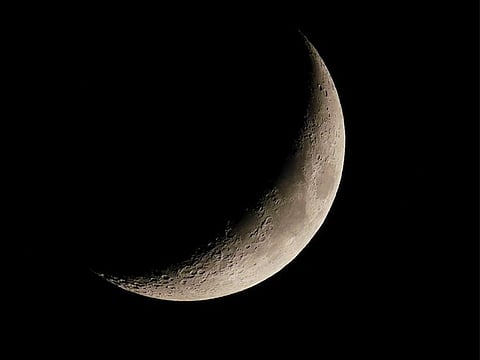Ramadan 2023 date in UAE: 40 days left for month of fasting
The official date will be announced by UAE authorities closer to the day

Dubai: Ramadan, the holy month of fasting for Muslims around the world, is just around the corner with only 40 days left.
According to Ibrahim Al Jarwan, Chairman of the Board of Directors of the Emirates Astronomy Society, a member of the Arab Union for Astronomy and Space Sciences (AUASS), Ramadan will astronomically begin on Thursday, March 23, 2023.
Al Jarwan said that Eid Al Fitr will most likely fall on Friday, April 21, with Ramadan only lasting for 29 days.
The fasting hours will reach approximately 14 hours, and vary about 40 minutes from the beginning of the month to the end.
On the first day of Ramadan, UAE residents who observe Ramadan will fast for about 13.30 hours, while they will fast 14.13 hours on the last day of the holy month.
What is Ramadan?
Ramadan is the ninth month of the Islamic calendar. It is regarded as the holiest month of the year as it was the month in which the Quran was revealed to Prophet Mohammad (peace be upon him) on the night of Laylat Al Qadr, one of the last ten nights of Ramadan.
Ramadan is the month of piety, charity and blessings. During Ramadan, capable Muslims are required to abstain from eating and drinking from dawn to dusk. Such fasting is one of the five pillars of Islam.
Moon sighting
The UAE follows an official announcement in this regard from the moon-sighting committee in Mecca, as it is considered the holiest city in the Islamic world
Like other months, Ramadan too begins at the first sighting of the new crescent moon and lasts 29 or 30 days depending on the sighting of the next crescent. The UAE follows an official announcement in this regard from the moon-sighting committee in Mecca, as it is considered the holiest city in the Islamic world. It is the birthplace of Prophet Mohammad (PBUH) and also the location where he had his first revelation of the Quran.
The Islamic calendar has 354 days. Hence, Ramadan arrives 11 days earlier in every subsequent year of the Gregorian calendar. People greet each other by saying 'Ramadan Kareem', which means 'Happy Ramadan'.
How is Ramadan observed in the UAE?
The Ramadan traditions in the UAE start mid-Shaaban (the month preceding Ramadan). This day is known as Hagg Al Layla. Emirati children dress in their best clothes and go to houses in the neighbouring areas reciting songs and poems. The neighbours welcome them with sweets and nuts, which is collected by children in traditional cloth bags.
There are two main meals in Ramadan: Suhoor and Iftar. Suhoor is consumed early in the morning before sunrise, just before fasting hours start. Iftar is the meal to break the fast. Following the example of the Prophet Muhammad, fasting is broken with dates and laban (buttermilk) throughout the Islamic world.
On the first night of Ramadan, the family gathers at the house of the male head of the family, usually the grandfather, for their first Iftar. In the UAE and the other GCC countries, dates are considered as the 'bread of the desert'. Gars, a bread-like crumble with dates and cardamom, is a popular Emirati sweet dish during Ramadan. Other common dishes are Harees and Threed.
Midfa Al Iftar, or firing the canon, signals the moment when Muslims can break their fast
Firing the cannon (Midfa Al Iftar) is an integral part of the Islamic culture and takes place in many regions across the country. It can be heard around 8-10 km away. It signals the moment when Muslims can break their fast.

